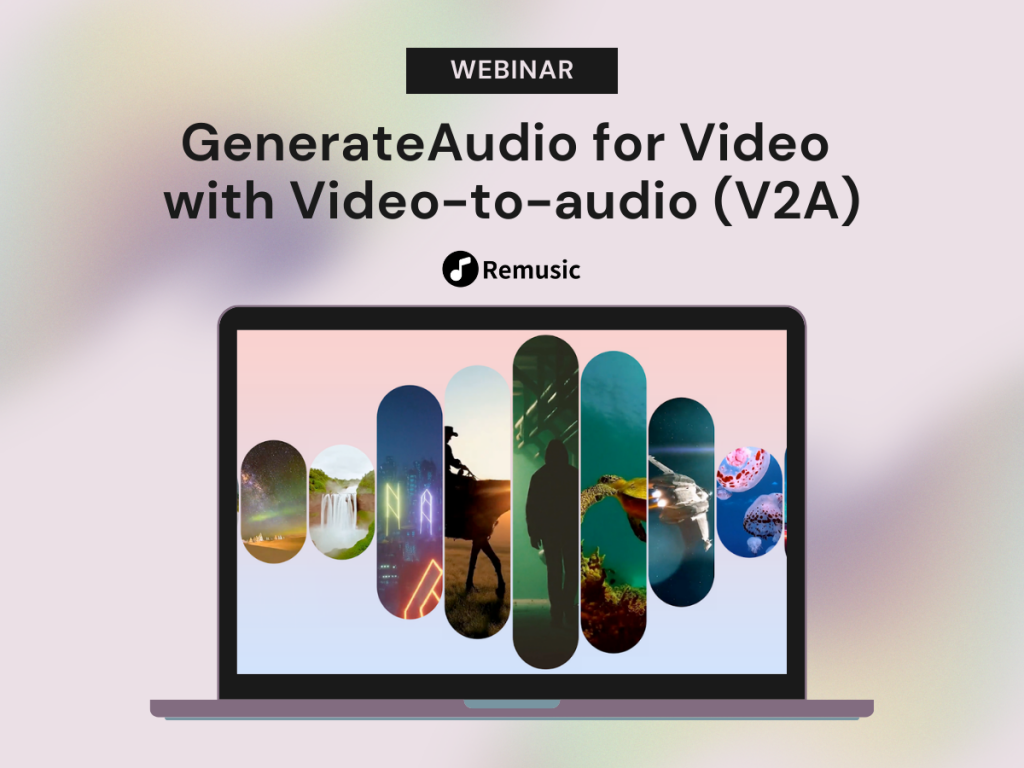What is Video-to-Audio (V2A)?
Video-to-Audio (V2A) by DeepMind is an advanced technology designed to generate synchronized audio for video content. It uses video pixels and text prompts to create realistic soundscapes.
How Video-to-Audio Works
V2A combines video inputs with natural language prompts. A diffusion model refines audio from random noise, ensuring it aligns with visual cues.
Steps to Generate Audio with V2A
- Input Video: Begin with your video content, whether it’s traditional footage, archival material, or a silent film.
- Text Prompts: Use descriptive text prompts to guide the type of audio you need. These can be positive or negative prompts, specifying the desired sound characteristics.
- Diffusion Model: V2A employs a diffusion model to refine audio from random noise, ensuring it matches the visual elements of the video.
- Audio Refinement: The model iteratively improves the audio quality and synchronizes it with the video, resulting in a cohesive final product.
Cases: Creative Video and Prompt with Video-to-Audio
Formal with Prompt
Use specific prompts to guide the generation of formal, professional audio tracks.
1、Prompt for audio: Cinematic, thriller, horror film, music, tension, ambience, footsteps on concrete
2、Prompt for audio: Cute baby dinosaur chirps, jungle ambience, egg cracking
3、Prompt for audio: jellyfish pulsating under water, marine life, ocean
4、Prompt for audio: A drummer on a stage at a concert surrounded by flashing lights and a cheering crowd
5、Prompt for audio: cars skidding, car engine throttling, angelic electronic music
6、Prompt for audio: a slow mellow harmonica plays as the sun goes down on the prairie
7、Prompt for audio: Wolf howling at the moon
Enhanced Creative Control
Experiment with different prompts to achieve creative and dynamic audio outputs.
1、Prompt for audio: A spaceship hurtles through the vastness of space, stars streaking past it, high speed, Sci-fi
2、Prompt for audio: Ethereal cello atmosphere
3、Prompt for audio: A spaceship hurtles through the vastness of space, stars streaking past it, high speed, Sci-fi
Applications and Benefits
V2A technology is highly versatile, finding use in various sectors:
- Silent Films: Breathe new life into old silent films by adding appropriate soundtracks.
- Archival Footage: Enhance historical footage with realistic audio, providing context and improving viewer engagement.
- Video Editing: Simplify the audio production process in video editing, allowing creators to focus more on visual storytelling.
The benefits include reduced manual effort in synchronizing audio with video, rapid experimentation with soundscapes, and the ability to create customized audio tracks that match the mood and action of the video content.
Future Improvements
DeepMind continues to work on refining V2A technology to overcome current limitations:
- Audio Quality: Ongoing research aims to enhance the overall audio quality, making it indistinguishable from human-created soundtracks.
- Lip Synchronization: Improvements are being made to better synchronize generated audio with on-screen speech, especially in dialogue-heavy videos.
- User Feedback Integration: By incorporating feedback from diverse users, DeepMind seeks to make V2A more adaptable and effective for various creative needs.
For more detailed information, visit the DeepMind blog.


